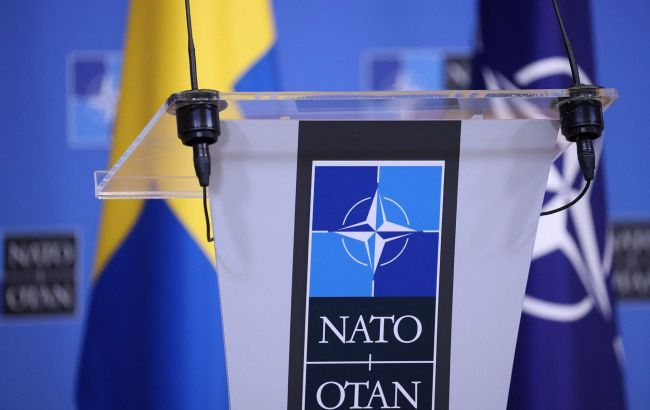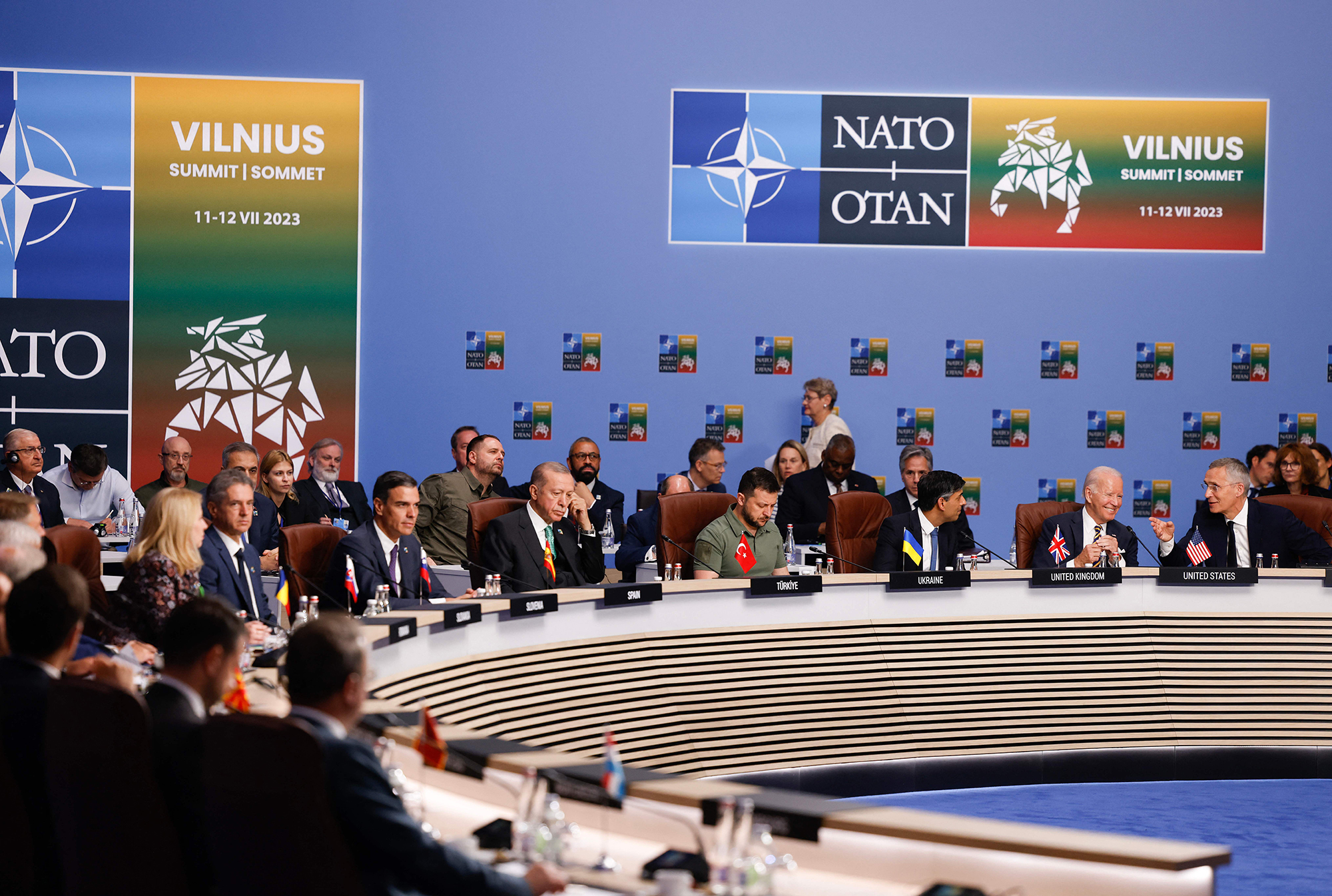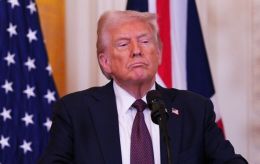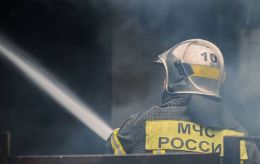Response to Russian attacks: What to expect from Ukraine-NATO Council meeting
 Meeting of the Ukraine-NATO Council was called for January 10 (Getty Images)
Meeting of the Ukraine-NATO Council was called for January 10 (Getty Images)
Today, on January 10, the Ukraine-NATO Council will hold an emergency meeting against the backdrop of the intensified mass shelling by the Russian Federation. Allies plan to discuss the strengthening of Ukrainian air defense capabilities to repel occupant attacks.
For more details about the meeting and the agenda of the Council, refer to the material by RBC-Ukraine below.
During the preparation, sources included: NATO portal publications, a statement by NATO spokesperson Dylan White on social media X, comments by the Minister of Foreign Affairs Dmytro Kuleba to Politico and his statement on X, and comments by the NATO press service for RMF FM.
Extraordinary meeting at the request of Ukraine
The Secretary-General of the North Atlantic Alliance, Jens Stoltenberg, has called for a meeting of the Ukraine-NATO Council on Wednesday, January 10.
The ambassador-level meeting in Brussels is unscheduled. It was initiated by the Ukrainian side due to missile and drone attacks on civilian cities, which the Russian army has intensified in recent weeks.
NATO strongly condemned the occupiers' attacks, calling them "another demonstration of Putin's attempts to break Ukraine's resolve," but assured that "he will not succeed."
"The Alliance continues to support Ukraine's right to self-defense against Russia's aggressive war. We will stand by Ukraine for as long as necessary," the NATO press service stated after the recent hostile shelling of Ukrainian cities.
Expectations for the meeting
The key topic of the meeting is expected to be the strengthening of Ukraine's anti-aircraft defense capabilities. Such expectations were expressed by the head of the Ministry of Foreign Affairs, Dmytro Kuleba, who added that this includes both modern systems and the ammunition for them.
"Ensuring regular deliveries of missiles for systems such as Patriots, IRIS-T, NASAMS, and others is a top priority that should be completed today, not tomorrow. Moreover, the more successful Ukraine's anti-aircraft defense is, the less likely it is that a Russian missile or drone will accidentally enter NATO's border airspace," emphasized the minister.
On the eve of the meeting, Kuleba stated that the Council's gathering is "an important signal" of Euro-Atlantic unity amid the escalation of Russian terror.
On their part, within the Alliance, it was noted that "allies have provided Ukraine with a wide range of air defense systems and intend to continue strengthening its defense."
Following the massive attacks by the Russian Federation at the end of December and the beginning of January, several leaders of NATO countries called for an enhancement of military assistance to Ukraine and the strengthening of its air defense capabilities.
In particular, the head of the Ministry of Foreign Affairs of Poland, Radosław Sikorski, proposed transferring long-range missiles to the Armed Forces of Ukraine to eliminate launchers on the territory of the aggressor country and to intensify sanctions against Russia.
What is the Ukraine-NATO Council
The format of the Ukraine-NATO Council was established by the decision of the summit in Vilnius in the summer of 2023 as one of the steps to our country's accession to the North Atlantic Alliance.
This new cooperation platform replaced the Ukraine-NATO Commission, which had existed since 1997, and opened up broader opportunities for collaboration.
During the Council meetings, mutual consultations occur, decisions are made, and this format serves as a mechanism for crisis consultations between Ukraine and NATO.
Within the Council, the Ukrainian side and members of the Alliance sit as equals. Meetings can occur at various levels, including heads of state and governments, ministers of foreign affairs and defense, ambassadors, or in a military format.
All participating countries, including Ukraine, can convene Council meetings for crisis consultations. This distinguishes the new platform from the Commission format.
The inaugural meeting of the Ukraine-NATO Council took place on July 12, 2023, at the summit in Lithuania at the level of heads of state and governments. President Volodymyr Zelenskyy participated in it.

Photo: Summit in Vilnius, where the Ukraine-NATO Council was inaugurated (Getty Images)
Results of the previous meeting
On November 29, a meeting of the Ukraine-NATO Council took place in Brussels at the level of foreign ministers. It was the first meeting in such a format.
Allies gathered to discuss the reforms that Kyiv needs to implement for NATO membership and further military support. The Ukrainian delegation presented the annual national program outlining the reforms that bring closer the membership.
Following the meeting, NATO Secretary-General Jens Stoltenberg stated that "Ukraine is much closer to NATO than ever before." He announced that the Alliance provided recommendations to Ukraine regarding initial reforms, including the fight against corruption and the support of human rights. Stoltenberg also emphasized the need for changes in Ukrainian legislation, particularly in security and the modernization of intelligence structures.
During the Council meeting, NATO countries approved the assistance program for Ukraine in 2024. It includes energy security, innovation, and cooperation to help Ukraine transition from Soviet to NATO standards, aiming for full interoperability with Alliance forces.
More detailed information about the results of the November 2023 meeting of the Ukraine-NATO Council at the ministerial level can be found in the material by RBC-Ukraine.
It was previously reported that on January 17, 2024, there will be a meeting of the Ukraine-NATO Council at the level of Chiefs of Defense. It will take place within the framework of the Alliance's Military Committee meeting. Allies will discuss Russia's aggressive war against Ukraine, the situation on the ground, and further NATO support for Ukraine.

